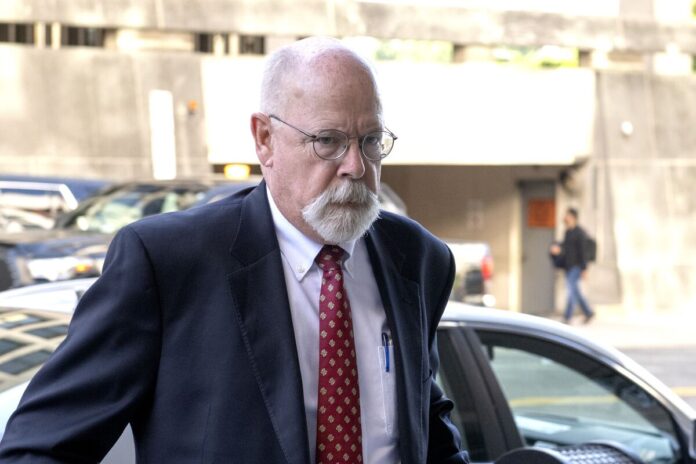Let’s talk about John Durham. You’d think that as special counsel, his job would be to present hard facts, expose the truth, and maintain justice. But does success always look like this? Not necessarily. Durham’s mission, assigned by then-Attorney General Bill Barr, was to substantiate Trump’s claims that the FBI’s Trump-Russia probe was a “deep state” hoax. Despite four years and a hefty $7 million price tag, his pursuit turned up little more than already-known FBI missteps, and no criminal plot was discovered.
Yet, there was a success—in a twisted, unconventional sense. Durham provided sustenance for Trump-Russia denialists, those relentless refuters who conveniently ignore that Russia interfered with the 2016 election to benefit Trump. This “Great Russian Deflection,” steered the public eye away from Trump and his camp’s collusion with Russia and towards the question of the FBI’s motives in their investigation.
The Russia scandal has been consistently painted by Trump and his cohorts as a conspiracy designed to ruin his candidacy and subsequent presidency. In their narrative, the victimized Trump was spied upon by the Obama administration and persecuted by the national security state. It’s a cunning distraction from the inconvenient truth—that Trump’s rise to power was, in part, due to a covert Russian operation he willingly supported.
Trump and his defenders screamed about the FBI’s supposed conspiracies, deflecting attention from the real findings of the investigation. They exploited inaccuracies within the Steele dossier, acting as if these inconsistencies negated the verified truth of Russia’s meddling and Trump’s complicity in it.
Durham’s futile quest to validate Trump’s conspiracy theory inadvertently nourished the denialists’ narrative for years. His investigations served as a beacon, distracting from the real issues of Russia’s interference and Trump’s deceitful cooperation, instead stoking both legitimate and baseless questions about the investigation.
Durham’s focus on probing the probe played right into Trump and his conservative allies’ hands. This “weaponization of government,” where a potent prosecutor was unleashed for Trump’s political interests, exemplifies the very corruption Republicans decry. Even though Durham’s efforts bore no substantial fruits, they offered enough material for Trump’s followers to keep their diversionary tactics alive.
When Durham’s long-awaited report dropped, it turned out to be more of a fizzle than a bang. Yet, Trump, Republican officials, and conservatives predictably seized on it to fuel their relentless disinformation campaign. Despite the report not substantiating any of Trump’s claims, the ex-president declared it evidence that the FBI should never have launched the Trump-Russia Probe. This was, of course, a blatant misrepresentation. Other GOP figures echoed similar falsehoods, with the report becoming an anthem sheet for the Trump-right choir to sing their song of deceit.
Even though Durham’s investigation largely confirmed the legitimacy of the FBI’s Russia probe, it’s been successful in one alarming aspect—it keeps the narrative focused on the investigation rather than on what Moscow and Trump actually did. This “coverup-by-confusion” is an ingenious strategy: distract, deflect, and hype up a sideshow. While Trump and his followers may not have to prove their Deep State conspiracy theory, they’ve successfully muddled the waters, burying the real Trump-Russia scandal under layers of deflection and misdirection. As it turns out, you don’t need to uncover the truth to succeed—you just need to cast enough doubt.



